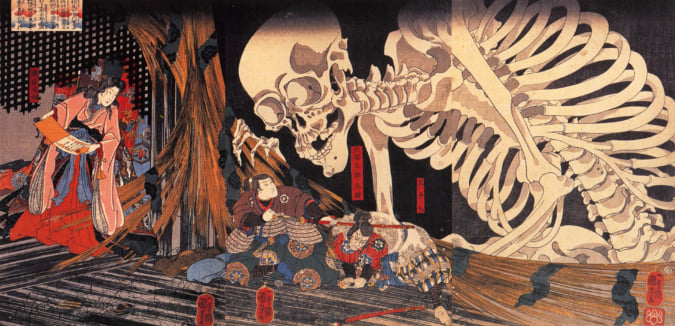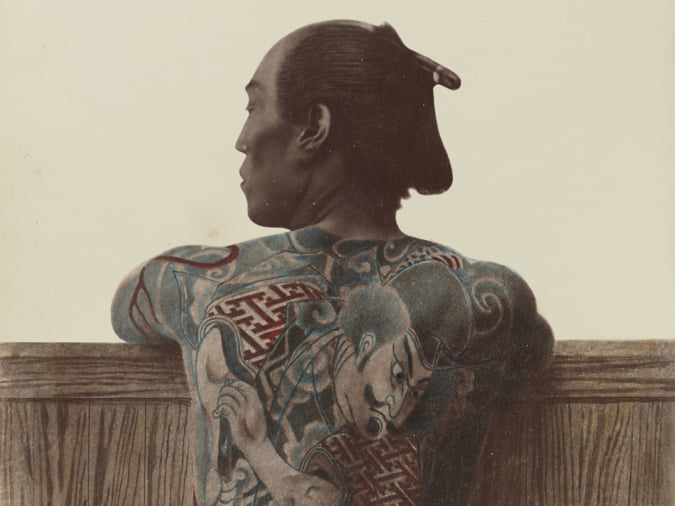‘The Pornographers’, Beyond the Flesh
This feature film by Shohei Imamura uses the framework of pornography to reveal the contradictions embodied by post-war Japan.
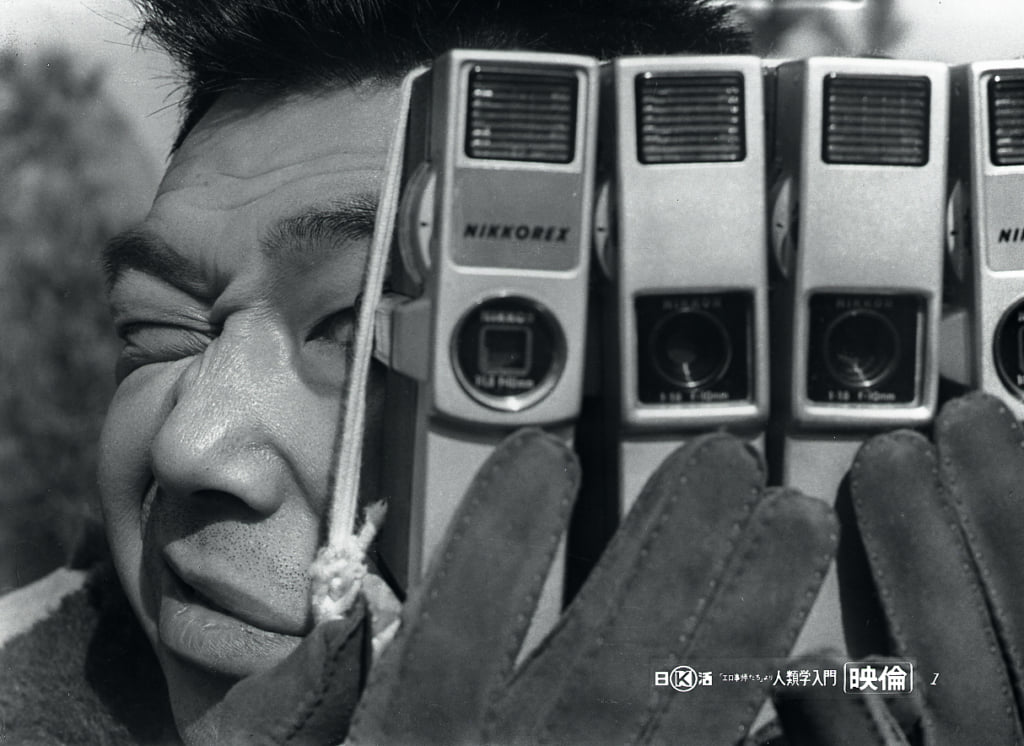
© Courtesy of Elephant Films
Rather than the main title, The Pornographers, the viewer needs to focus more on the subtitle, Introduction to Anthropology, to understand what is at stake in this film by Shohei Imamura. Over the 120-minute duration of this feature film, an adaptation of the eponymous novel by Akiyuki Nosaka published three years earlier, the viewer sees hardly any exposed skin.
Mr Ogata, the main character, is a medical-device sales representative who supplements his salary by making erotic films that he sells under the counter. Very soon, however, his small business starts to grow and he fulfils an increasing number of orders from wealthy clients, which does not fail to attract the attention of the yakuza.
Denouncing Japanese corruption
The film also has a zany side. Mr Ogata lives with Haru, a widow who is convinced that her husband has been reincarnated as the carp in the aquarium that stands in the centre of the living room. The comical elements do not however obscure the darker side of the narrative, which is revealed as the hero’s lucrative activity degenerates into depictions of incest, paedophilia, and prostitution.
Shohei Imamura’s film is a multifaceted one as, behind the narrative that plays out in the back streets of Osaka, the corruption of post-war Japanese society is what the filmmaker, two-time recipient of a Palme d’or for The Ballad of Narayama (1983) and The Eel (1997), seeks to expose.
The Pornographers presents, with a wealth of details, humans, the traditional family unit, and the norms that can turn out to act as a straitjacket. By examining marginality, sexuality, perversion, and criminality, Shohei Imamura addresses the excesses that can, he believes, be encouraged by the material comfort found after the war years, and asks one question: who is more corrupt, the hero or society?
The Pornographers (1966), a film directed by Shohei Imamura, was released on DVD by The Criterion Collection.
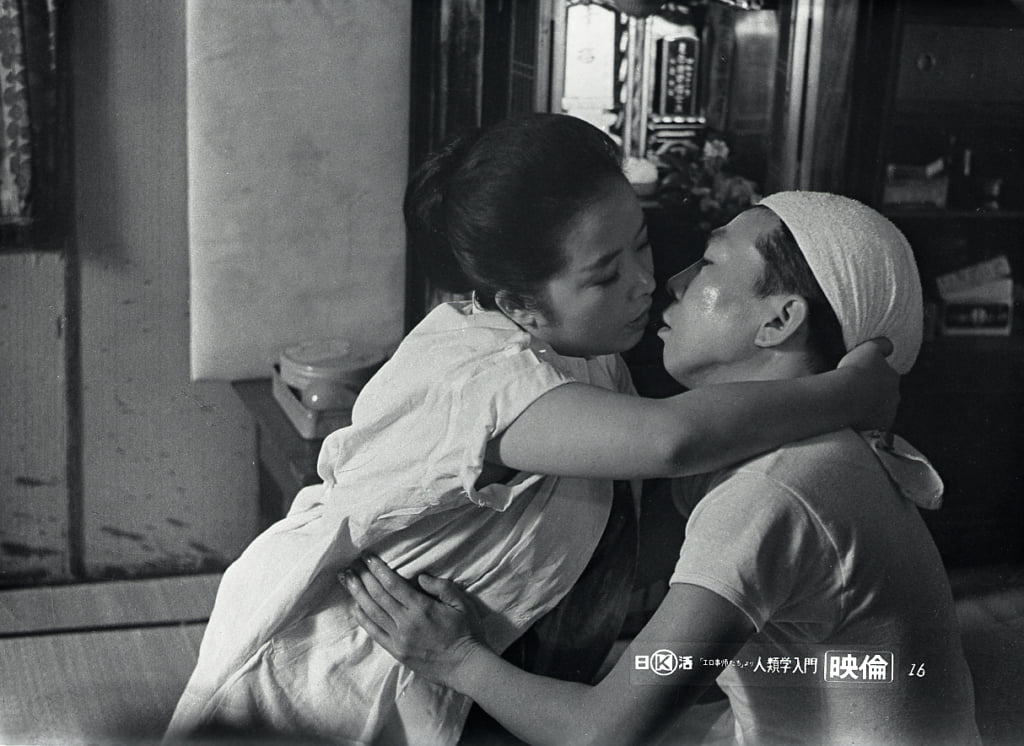
© Courtesy of Elephant Films
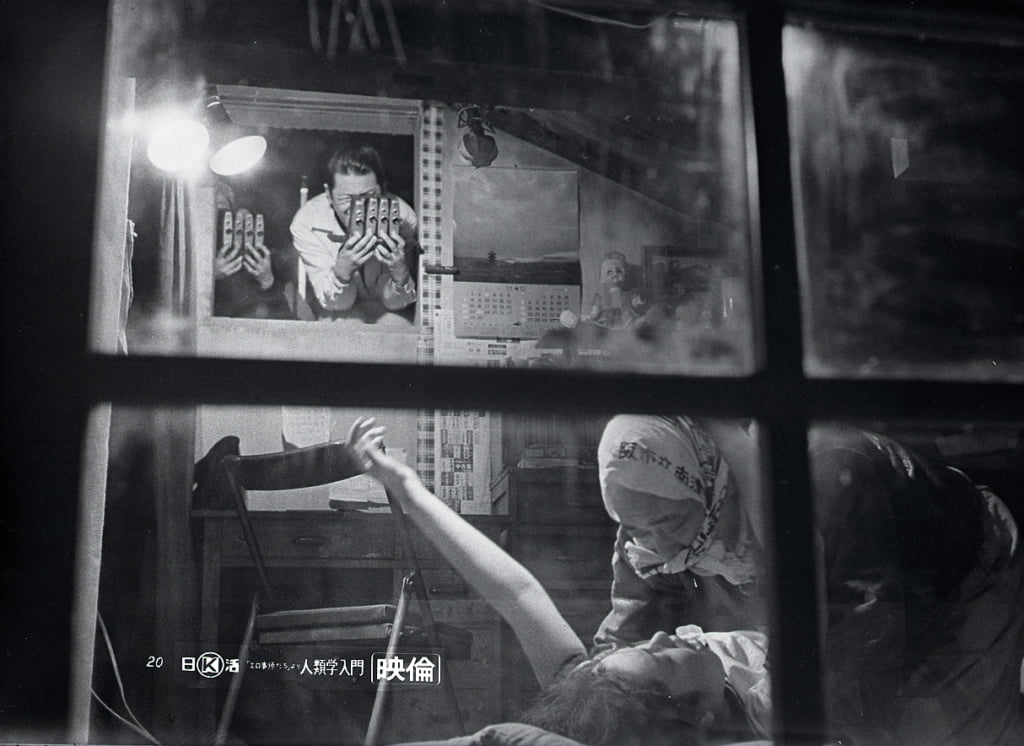
© Courtesy of Elephant Films
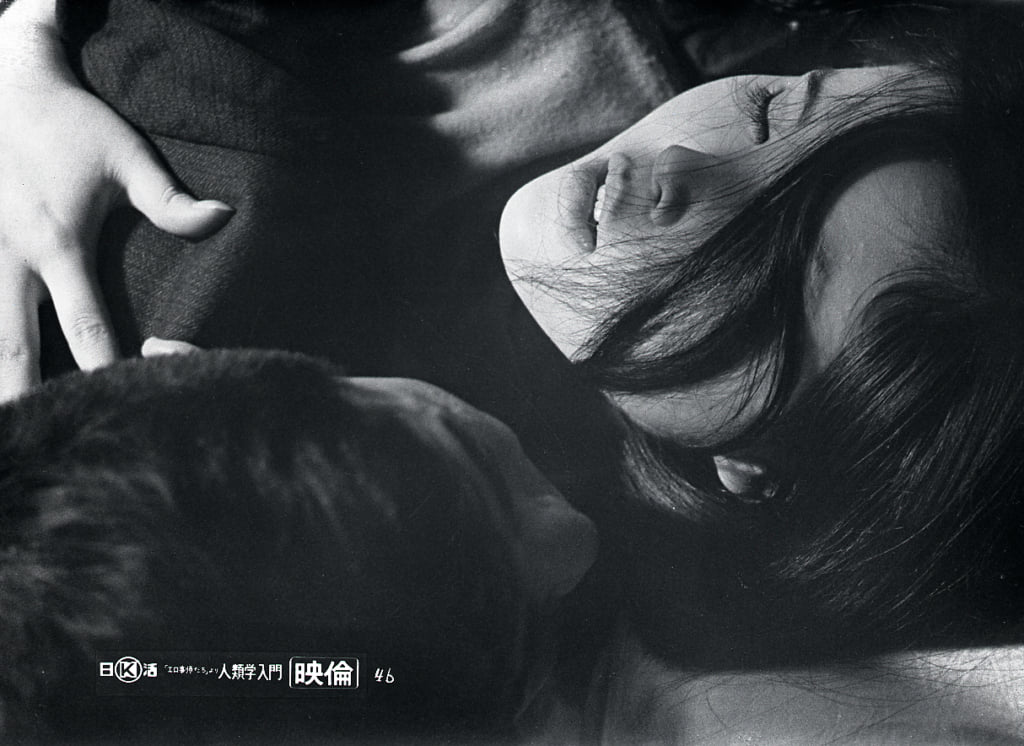
© Courtesy of Elephant Films
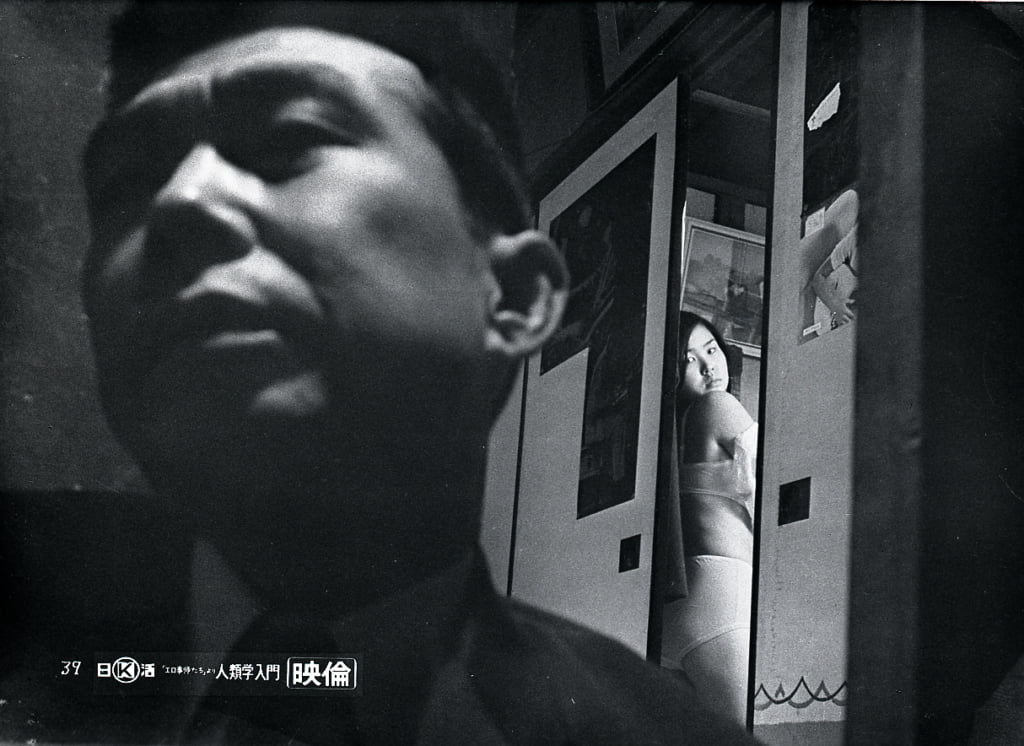
© Courtesy of Elephant Films
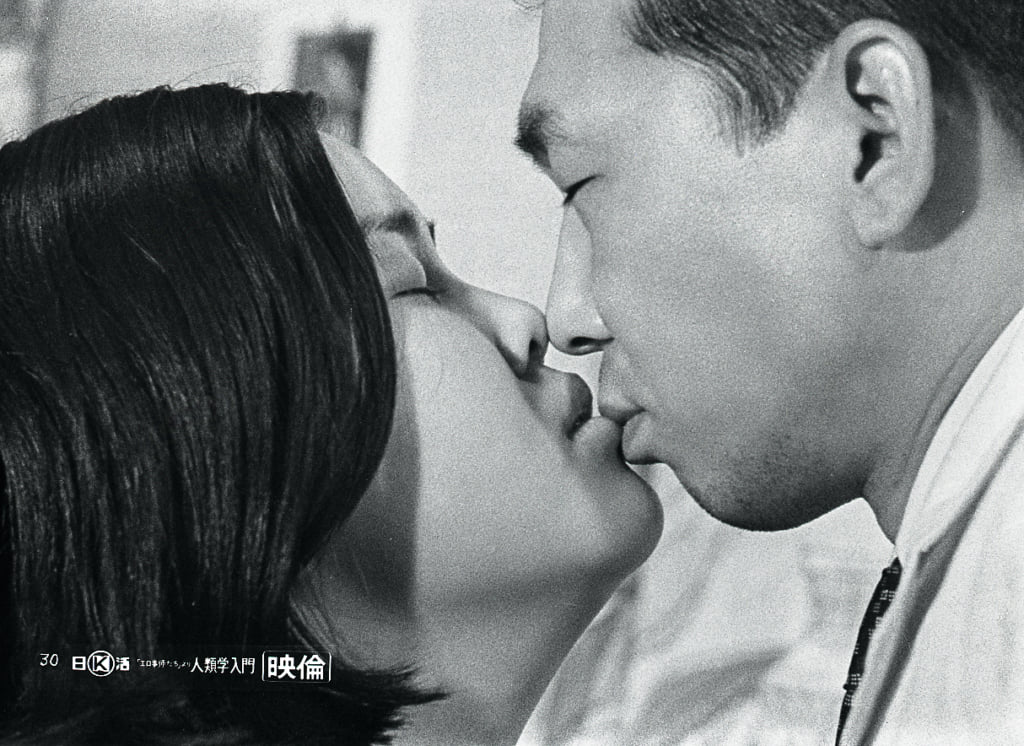
© Courtesy of Elephant Films
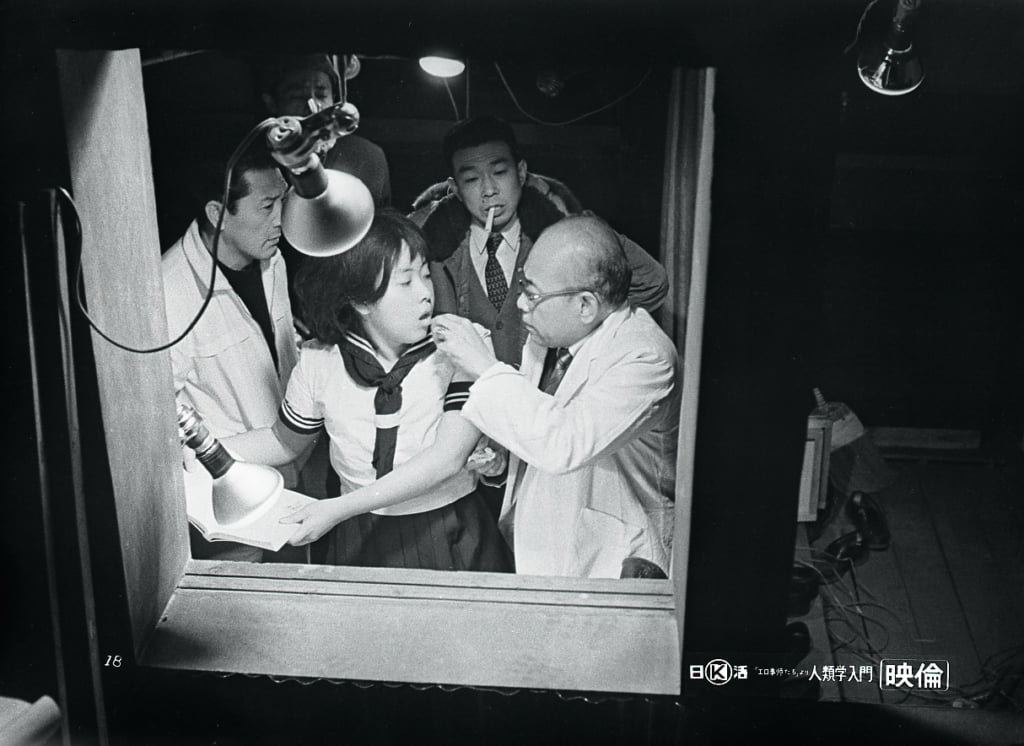
© Courtesy of Elephant Films
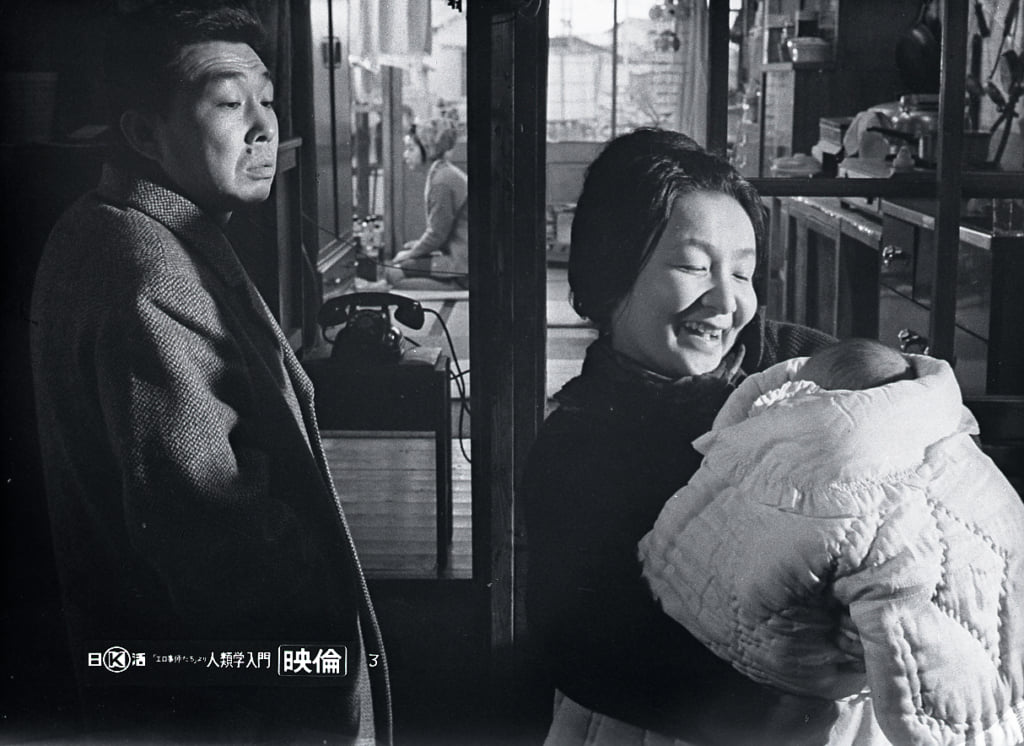
© Courtesy of Elephant Films
TRENDING
-
The Tattoos that Marked the Criminals of the Edo Period
Traditional tattoos were strong signifiers; murderers had head tattoos, while theft might result in an arm tattoo.

-
The Tradition of the Black Eggs of Mount Hakone
In the volcanic valley of Owakudani, curious looking black eggs with beneficial properties are cooked in the sulphurous waters.

-
Gashadokuro, the Legend of the Starving Skeleton
This mythical creature, with a thirst for blood and revenge, has been a fearsome presence in Japanese popular culture for centuries.

-
Colour Photos of Yakuza Tattoos from the Meiji Period
19th-century photographs have captured the usually hidden tattoos that covered the bodies of the members of Japanese organised crime gangs.

-
‘YUGEN’ at Art Fair Tokyo: Illumination through Obscurity
In this exhibition curated by Tara Londi, eight international artists gave their rendition of the fundamental Japanese aesthetic concept.



